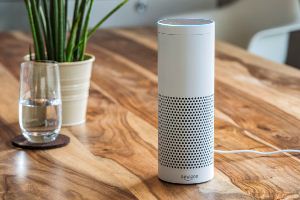Amazon solidifies its smart speaker portfolio with Alexa for Hospitality

While Alexa for Hospitality offers numerous features that will appeal to hoteliers and their guests, privacy concerns will likely limit growth and prevent broader implementation of the technology in a majority of the world’s hotels. Bryan Montany, analyst, building automation and smart buildings, IHS Markit writes, the 10 Marriott International properties participating in this year’s rollout only intend to offer smart speakers in a fraction of their available guest rooms, and most other hotels investing in the technology will likely follow suit.
To facilitate growth, Amazon must address privacy concerns
Alexa and other voice assistants are designed to always listen for “wake commands,” and the inclusion of Alexa for Hospitality in guest rooms may threaten guests’ expectations of privacy. While Amazon Echo includes a mute button that disables voice recognition, there have been known cases when voice recognition has failed to disable itself properly when prompted.
To combat these concerns, Alexa for Hospitality is specifically designed to restrict hoteliers’ access to recorded conversations, and all recorded dialogue is deleted within 24 hours of use. Regardless, Alexa for Hospitality is offering hotels a platform to analyse data to measure guest engagement, which suggests that hoteliers will be able to monitor metrics related to the speaker’s use.
Furthermore, Amazon intends to eventually enable guests to connect their personal Amazon accounts to Echo devices in hotel guest rooms. While this feature would allow guests to access their personalised content, private information related to user accounts would be exposed.
To ensure this data is not compromised, Amazon intends for guest accounts to automatically disconnect when a guest checks out of the hotel. Still, software errors, misidentified checkout times or cyberattacks could lead to the unanticipated exposure of confidential information. It is unlikely that any solution Amazon identifies could completely eradicate these privacy risks and concerns.
If Alexa for Hospitality succeeds, Amazon’s competitive advantage will expand
Regardless of these privacy concerns, smart speakers and voice-activated products are expected to be popular, especially among luxury hotels and resorts that cater to millennials or corporate executives. Smart speakers will be attractive investments for hoteliers as voice assistants’ abilities to cater to guests’ needs will lessen demands on concierges and front desk clerks.
Housekeeping and room service can also be coordinated in response to voice commands, increasing both guest satisfaction and daily operational efficiency. Finally, when smart speakers are integrated with BMS platforms or connected to subordinate equipment, guests can remotely control lights, climate control systems or appliances in guest rooms through vocal commands. These factors will outweigh privacy concerns and drive accelerated growth in the hospitality segmentation over the next half-decade.
Amazon’s partnership with Marriott, and the rollout of Alexa for Hospitality, could represent a major victory for Echo and Alexa in the competitive smart-speaker and virtual-assistant landscape. Previous IHS Markit reports predicted Amazon’s platform would eventually be overtaken by competitors, but these forecasts assumed Amazon would struggle to achieve the same market dominance in commercial markets as they’ve achieved in the smart home space.

Bryan Montany
If Amazon is able to consolidate its market presence through partnerships with major hotel chains in the hospitality industry, it may increase pressure on Google and other competitors by achieving a dominant market share across a multitude of vertical markets.
Smart Buildings Report – 2018
This report examines the global market for the equipment and building management system (BMS) platforms installed in building projects. It analyses the significant trends, threats and opportunities for growth affecting this market through 2022. The report includes extensive qualitative analysis of differing approaches taken by building owners in six end-user industries, as well as quantitative Excel data, forecasting growth across 4 product types, 14 equipment types and 5 geographic regions.
The author of this blog is Bryan Montany, analyst, building automation and smart buildings, IHS Markit
Comment on this article below or via Twitter @IoTGN
